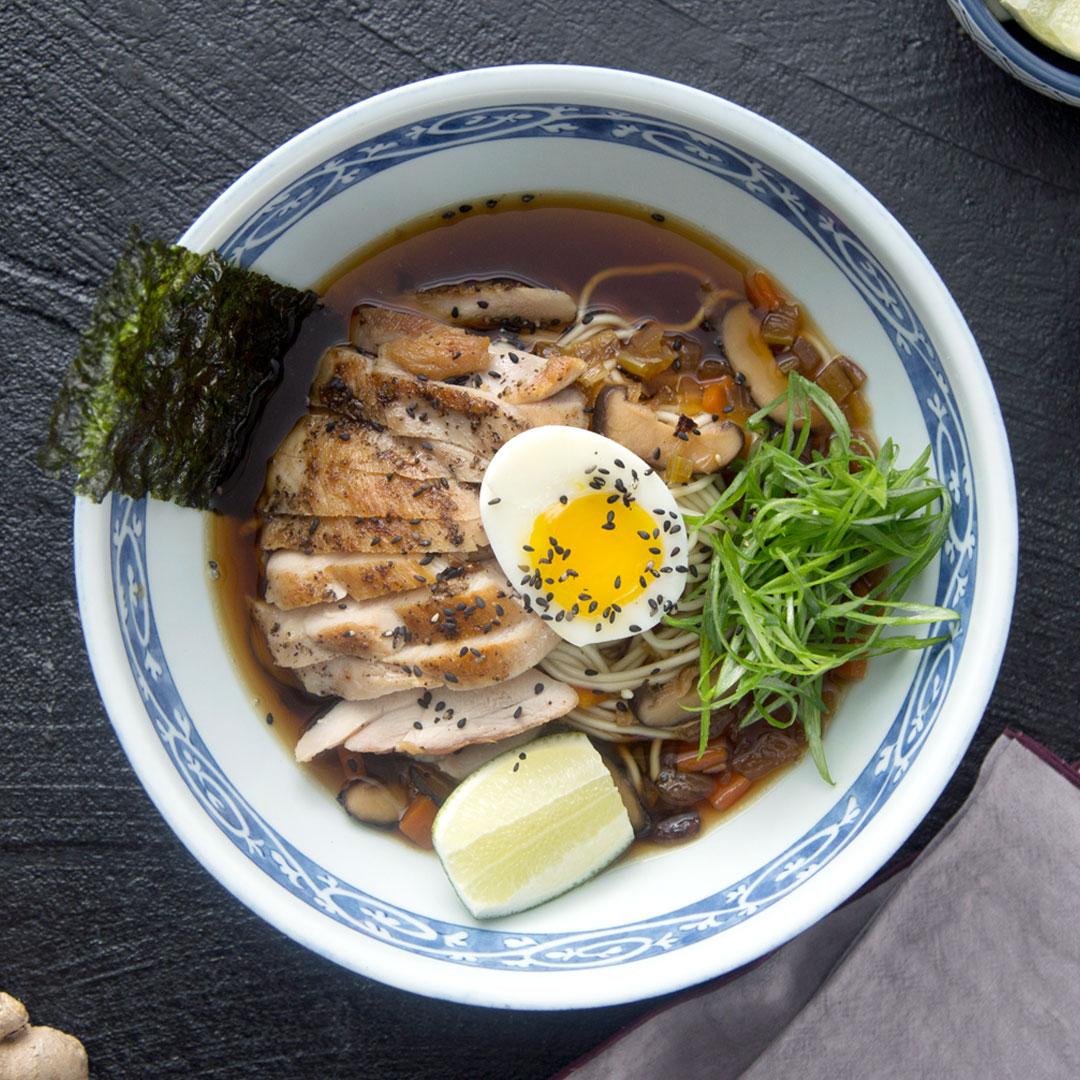Everyone has had a ramen experience. Whether from your college dorm days to your trip to Tokyo, Ramen has brought pleasure to millions of mouths around the world, possibly billions.
Known best as a delicious Japanese noodle dish, ramen was actually imported there from China. After World War II, Japanese soldiers brought home what became one of their favorite Chinese street food delicacies. Today, most regions in Japan make their own unique variations with different broths, noodles, seasonings, and toppings. The rest is ramen history.
Here are six styles of ramen that you need to try.
1. Shoyu

https://www.tastemade.com/recipes/jerk-chicken-ramen
Often, you can tell the type of ramen by the color and consistency of the broth. Shoyu broth has a soy sauce base with a clear, brown color. Usually, Shoyu ramen has curly noodles, and the meat or vegetable stock gives it a delicious, tangy flavor. If you’re in Tokyo, Shoyu is the most familiar form of ramen you’ll find.
2. Tonkotsu

https://www.tastemade.com/recipes/chicken-noodle-ramen
Tonkotsu translates to “pork bone.” This broth is thick and cloudy white in color. The coloring and consistency come from the boiling of pork bones and fat on high heat for many hours (for some places, this means up to 20 hours). Some even say that tonkotsu broth is as creamy as milk. Throw some ginger on this buttery broth and curl up with a good book.
3. Shio

https://www.tastemade.com/recipes/avocado-ramen
This salty broth is considered the oldest of the ramen broths. In fact,
shio
translates to “salt,” and sea salt is considered the oldest form of ramen seasoning.
Typically, a shio broth is made with chicken or pork base. You can identify this broth both by it’s extremely salty flavor, as well as it’s clear yellow coloring. Often, shio ramen contains quite a lot of seaweed. If you have issues with sodium, this would be the ramen to avoid.
4. Miso

https://www.tastemade.com/recipes/seasoned-rice-with-miso-soup
Developed in Hokkaido, Japan in the 1960s, this broth is considered the youngest of the ramen broths. Unlike the others, this nutty, sweet soup is entirely Japanese. You may be able to tell this form of ramen apart from the others by it’s thick, curly and chewy noodles. Miso hungry just thinking about it.
5. Tsukemen

https://www.tastemade.com/recipes/soba-soup-with-spinach-and-shrimp-tempura
This form of ramen seems like the most fun. Not only are the noodles separate from the broth, but they’re meant to be dipped. The broth tends to be thicker and more robust, which makes it perfect for dipping. Be careful with this one, however, if you’re not a chopstick genius, start with two or three strands at a time.
6. Instant Ramen Noodles

https://www.tastemade.com/recipes/ragu-allamerican-student
What is a list about ramen without our old friend, instant Top Ramen? For many, these noodles (in the form of Justin Timberlake’s *NSYNC-era hair) were their first adventure into the wild world of ramen noodles.
Although it may not be considered as “genuine” to ramen snobs, instant ramen is a true throwback to those days where using the dorm microwave to warm instant noodles was the height of gourmet. Instant ramen is better than no ramen at all, ya’ dig? Just put an egg in it.